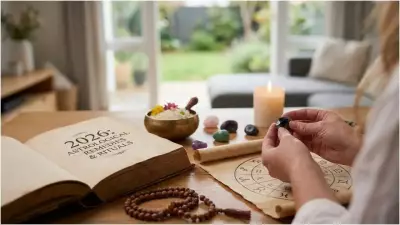
In our modern world filled with endless options, the simple act of choosing has become an unexpected source of mental exhaustion. According to Mumbai-based psychotherapist Sonali Gupta, the abundance of choices we face daily is quietly draining our cognitive resources and contributing to widespread anxiety.
The Simplicity of Limited Choices
Gupta recently visited Kasauli for a literature festival, which triggered childhood memories of annual trips to her maternal grandparents in Punjab and Chandigarh. What stood out was the profound joy found in simplicity - returning to the same places, eating the same foods, and living with limited options.
Visiting her grandmother's house meant predictable delights: bun tikki, samosas, imarti, and running to the neighboring store for Banta soda. This experience highlights a stark contrast to today's complex decision-making landscape, where even a simple coffee outing requires multiple choices about milk type and brewing preferences.
The Cognitive Toll of Choice Overload
Gupta observes that this phenomenon has permeated every aspect of modern life, from dating and food ordering to entertainment selection. Having too many options directly impacts our ability to choose, depletes our energy levels, and diminishes life satisfaction.
The exhaustion Gupta witnesses in her clients stems from the constant need to make decisions about small, everyday tasks. This leaves limited mental energy for significant life choices. Our social media feeds constantly bombard us with suggestions about what we should buy, read, and pay attention to, creating overwhelming cognitive overload.
This environment fosters a desire to maximize and optimize every moment, trickling down to daily tasks and creating pressure to constantly evaluate options. The result is a persistent fatigue from being in doing mode all the time, where even leisure activities carry the weight of making the perfect choice.
The Psychology Behind Decision Paralysis
Eliminating options and zeroing in on what we want demands significant cognitive resources, attention, self-control, and mental clarity. An abundance of choices not only tires us out but also increases the likelihood of post-decision regret.
People frequently entertain what if scenarios, a tendency amplified when choosing from numerous options. Gupta notes that perfectionism has crept into our daily tasks and choices, leading to higher expectations from even simple decisions.
When outcomes feel ordinary, people experience expectation mismatch and dissatisfaction. This phenomenon explains why at buffets or weddings with endless food options, many people end up eating very little. The freedom to choose doesn't necessarily bring satisfaction - instead, it leaves us visually and mentally exhausted from constant deliberation.
The solution, according to Gupta, lies in simplification and decluttering. Recognizing the exhaustion cost of abundant choices enhances our ability to be present. Sometimes, less truly is more when it comes to preserving mental energy and finding genuine satisfaction.





